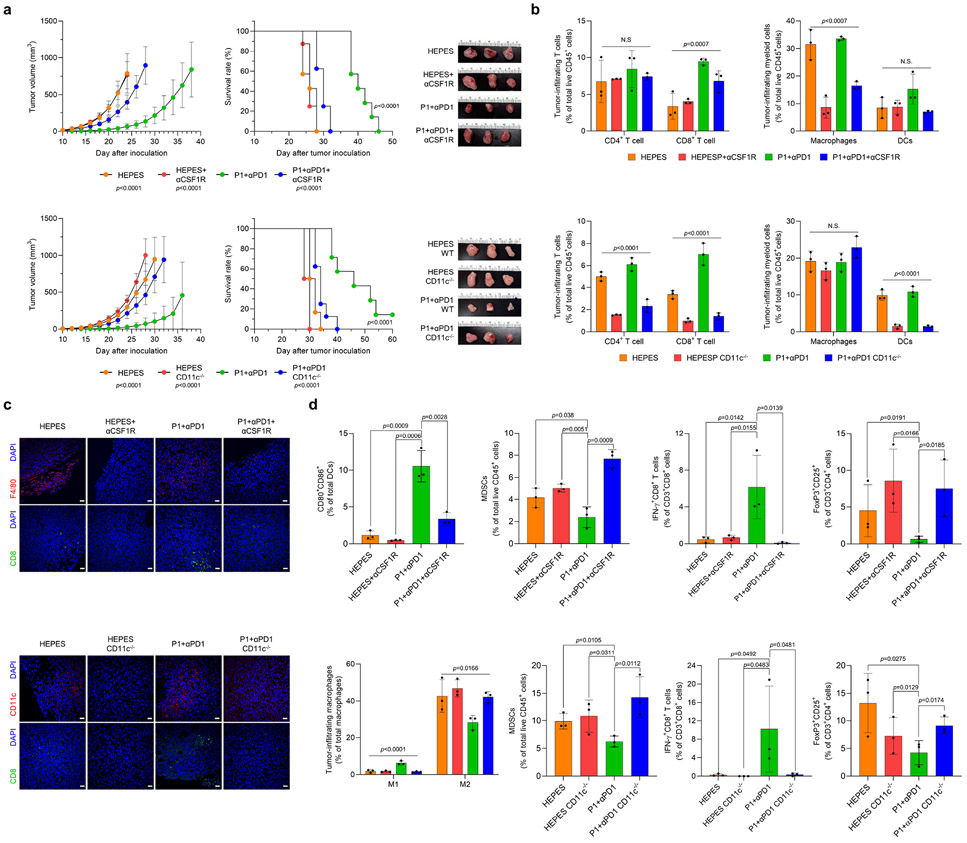Fig. 7. Activation of innate immunity is indispensable for the antitumor effect conferred by P1+αPD1.
(a) Depletion of macrophages (by αCSF1R) and dendritic cells (DCs) (by diphtheria toxin) in CD11c-DTR/GFP mice abolished the antitumor effect of P1+αPD1 and shortened the survival of EO771 tumor-bearing mice (for the macrophage-depletion study, n=6 for HEPES; n=7 for P1+αPD1; n=8 for HEPES αCSF1R, P1+αPD1 αCSF1R; for the DC-depletion study, n=6 for HEPES, HEPES CD11c−/−; n=7 for P1+αPD1; n=8 for P1+αPD1 CD11c−/−, mean±SD); unpaired Student’s t test in comparison with P1+αPD1 at Day 24 for macrophage-depleted study and at Day 28 for DC-depleted study, log-rank (Mantel-Cox) test for Kaplan-Meier survival curve. (b) Immune profile of tumor-infiltrating lymphocytes confirms depletion of macrophages or DCs and inhibition of T cell-infiltration into the tumor (n=3, mean±SD); Ordinary one-way ANOVA. (c) Immunofluorescence images show that depletion of macrophages and DCs prevented the recruitment of CD8+, F4/80+ or CD11c+ cells into the tumor (scale bar, 30 μm). (d) Subtype profiles of tumor-infiltrating T cells and myeloid cells in EO771 tumors show that depletion of macrophages or DCs blocked remodulation of the tumor microenvironments toward an immunostimulatory mode (n=3, mean±SD).

